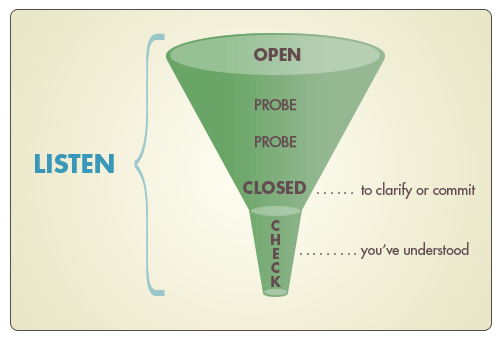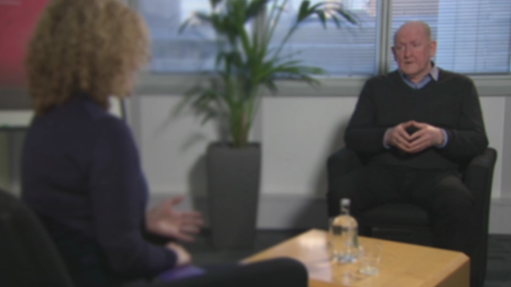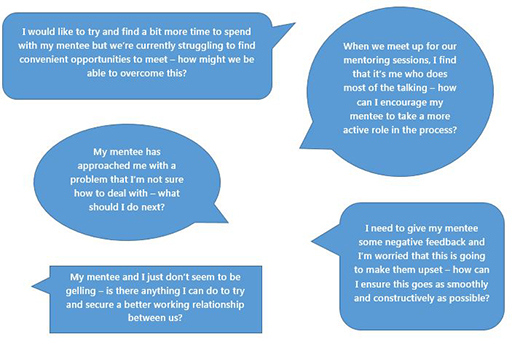Use 'Print preview' to check the number of pages and printer settings.
Print functionality varies between browsers.
Printable page generated Wednesday, 18 February 2026, 6:15 PM
Mentoring Matters – An Introduction to the Mentoring Process
Introduction

When Steve Jobs accidently walked into Robert Friedland’s room to sell his typewriter, he had sparked off a bond of friendship that would last long enough to effect a serious change in Steve Jobs’ attitude and working methods. According to the founder of Apple, “He turned me on to a different level of consciousness”.
The mentor in this case had pulled his mentee out of his shell and turned him into a more open and extrovert personality. Steve Jobs was essentially an open minded thinker and thus this tryst with Friedland allowed him to express his brilliant ideas openly and without hesitation. The world is now thankful to the fact that Steve Jobs became what he was, thus underlining the importance of a mentor in someone’s life.
Source: http://www.mentorpolis.com/ famous-mentors-and-their-famous-mentees/ #ixzz4Rhmdfs00
This example shows you how mentoring can help employees to develop, both personally and in their careers, and is something that is becoming increasingly popular; something that is perhaps linked to the growing numbers of apprentices we see entering the workplace.
However, there is still no clear definition of mentoring and how it can be used effectively to support both apprentices and employees in general and help them progress to personal and professional success.
This short course is designed to provide you with an introduction to the topic of mentoring, clarifying exactly what it means and why it is seen as such an important area.
In addition, you’ll explore the qualities of a good mentor and identify the skills that are crucial to a mentoring role.
Learning outcomes
After studying this course, you should be able to:
Understand what is meant by the term mentoring.
Appreciate the importance of the mentoring role for both the mentor and the mentee.
Recognise the key personal skills you may need to draw on in order to be an effective mentor.
Consider the different ways in which these skills might be developed in order to develop and maintain effective ongoing mentoring relationships.
1. What is mentoring?
Mentoring is a widely used term in many personal and professional environments – but what exactly do we mean by this?
Activity 1.1
Please take a few minutes to think about what this means to you, recording your thoughts in the space provided below:
Feedback
Mentoring is a developmental technique based on the use of one-to-one skills, knowledge and work performance.
It involves the forming of a long-term relationship between an experienced mentor and an inexperienced mentee, with the more experienced colleague using their greater knowledge to support the growth and development of the inexperienced staff member.
A mentor, therefore, is intended to be a responsible tutor, an experienced person who guides, advises, inspires, challenges, corrects and acts a role model.
Mentors should be a source of wisdom, guidance and support but shouldn’t necessarily be someone who observes and advises on specific actions or behavioural changes in daily work. Instead, they should be someone who can be approached as an additional source of support and guidance when workplace problems arise.
On this basis, an employee’s mentor should ideally be someone other than their supervisor or line manager.
Mentors should offer encouragement and advice without specifically telling someone what to do – this, ideally, is something the mentee should be encouraged to think through for themselves, something which should help them develop as an employee.
A mentor is sometimes also referred to as being a critical friend, developing a relationship in which they are prepared to listen, encourage and reflect whilst, if necessary, challenging assumptions and providing critical feedback on ideas.
The most effective mentoring relationships occur when the two parties share common ground - not only do they work in the same field but also have shared experiences (i.e. the mentor may have previously performed the same role now being undertaken by the mentee).
This commonality is something that gives the mentor a better understanding of the issues being faced by the mentee and can be a basis for empathy.
2. The benefits of mentoring
According to research, over three quarters of organisations who have some form of mentoring process in place state that their schemes bring significant benefits – but what exactly are these likely to be?
Activity 2.1
Thinking from the point of view of the person being mentored, list the key benefits that they can gain from the mentoring process.
Feedback
The key benefits typically encountered by mentees include:
- Access to someone who can provide a source of support during difficult times, such as being new to a business, undergoing assessments, undertaking a new role within the organisation or looking to take the next step on the career ladder.
- Access to a person who can be a sounding board to test out potential new ideas and approaches.
- Increased motivation, confidence and self-awareness that helps build performance and contribution and puts people in a better position to be able to take on new challenges.
- Development outcomes that may include knowledge, technical and behavioural improvements.
- Developing wider network of influence – a mentor might, for example, introduce their mentee to potential new contacts.
Although many of the apprentices you encounter may bring with them significant workplace knowledge and experience, there may also be employees who are at the early stages of their career.
As such, these employees may particularly benefit from having this additional level of support in place to help them fit into their workplace and develop into their role, something that can be effectively provided through a strong mentoring relationship.
To listen to a real world example of how someone benefited from the support and experience of having a mentor, watch the short video, entitled “The Power of Mentoring”:
Activity 2.2
Now thinking from the point of view of the organisation, how do the benefits felt by those involved in the process translate across the wider workplace?
Feedback
The potential benefits that might be gained by the wider workplace as a result of an effective mentoring programme include:
- Significant impact on recruitment and retention – research suggests that effective mentoring reduces the first year loss of new employees by two-thirds.
- Increases productivity through better engagement and satisfaction.
- Effective succession planning – mentees are given the chance to develop their skills, something which can help to prepare them for progression into different and higher roles within the organisation.
- Creates an environment where people gain wider skills.
- Provides the opportunities for employees to stake a greater investment in the long-term future of a business.
3. Why be a mentor?
Mentoring isn’t necessarily for everyone, however there are significant positives that might be gained from being a mentor.
Activity 3.1
What benefits do you feel you personally might be able to gain from becoming a mentor?
Feedback
Research suggests that some of the key benefits gained by those undertaking a mentoring role include:
- Develops managerial skills by taking responsibility for others, empathising, and discussing problematic workplace performance situations.
- Develops communication skills (i.e. questioning and listening), something that can help mentors in their wider professional lives.
- Provides additional skills that can be highlighted when applying for new roles.
- Becomes aware of their own development needs while supporting a mentee
- Learns from their mentees and colleagues who bring with them fresh perspectives and new ideas, something that can, in turn, help to develop the mentor’s own problem solving skills.
- Gains additional networking opportunities.
Activity 3.2
Before moving on to the next section of the course, take a minute to think about what it is that you feel you’d personally like to gain from your experiences as a mentor.
4. What makes a good mentor?
Activity 4.1
Think back over your life and identify one or two examples of people who have inspired you. What impact did this person have on you? What were the characteristics of this person? What do you feel you were able to learn from them?
Research involving mentees and mentors has explored and identified various elements that contribute to or undermine successful mentoring relationships.
Activity 4.2
Watch the video below, produced by the NHS local learning platform, which shows two related interactions between an apprentice (Paul) and his mentor (Jane).
As you watch, make a note of the factors that might make a positive impact on their mentoring relationship.

Transcript: NHS. http://www.nationalarchives.gov.uk/doc/open-government-licence/version/3/
Eller et al. (2014) conducted an extensive research study with students and their mentors from various academic disciplines, including natural sciences, nursing/health sciences, engineering, and technology.
As a result of this, it was concluded that the behaviours considered helpful for effective mentoring relationships can be categorised into eight key areas:

Activity 4.3
Now revisit the video clip in the previous activity and identify where you feel each of the components shown above can be observed in this mentoring relationship.
| Key components of an effective mentoring relationship | Observed factors from the video clip |
|---|---|
Open communication and accessibility |
|
Goals and challenges |
|
Passion and inspiration |
|
Caring personal relationship |
|
Mutual respect and trust |
|
Exchange of knowledge |
|
Independence and collaboration |
|
Role modelling |
Feedback
The table below shows some possible observations, but you may have others:
| Key components of an effective mentoring relationship | Observed factors from the video clip |
|---|---|
| Open communication and accessibility | Jane, the mentor, is available throughout the time the student, Paul, is carrying out the observations. Jane encourages open communication by asking how Paul felt the intervention had gone. There is good eye contact between Jane and Paul during the post-observation discussion, and she uses positive prompts such as nodding and smiling. |
| Goals and challenges | Jane sets Paul a new set of goals when she explores with him whether he has sufficient information to make a decision about appropriate pain relief for the patient. She indicates the need to establish the patient’s reported level of pain and to check his wound. |
| Passion and inspiration | Jane highlights her considerable experience as a registered nurse and her real desire, even though it might sound ‘corny’, to inspire her students so that they enjoy nursing as much as she does. |
| Caring personal relationship | Paul is unsure about the best way of managing the second patient’s pain. He has no hesitation in seeking his mentor’s advice, suggesting that he values the relationship and feels supported by it. |
| Mutual respect and trust | Paul appears to be comfortable when discussing aspects of care that he has initially missed. This indicates that he believes Jane will not respond in a punitive way. Instead, she will enable and encourage him to find solutions to his patient’s pain problem. Jane gives Paul pointers as to his next actions, but she trusts him to know how to assess the patient’s pain level and to check his wound. She trusts and respects that he will carry out the interventions correctly. |
| Exchange of knowledge | Jane discusses the process of recording observations with Paul, which enables him to highlight what he knows – for example, the importance of a strong, regular pulse, and that removing the patient’s arm from his sleeve might have been a better alternative. |
| Independence and collaboration | Jane allows Paul to take the blood pressure without interruption, encouraging independence. They work closely together to determine the best approach for managing the second patient’s pain. |
| Role modelling | Jane explains to the first patient that she is there to observe the students, thus role modelling the importance of offering explanations to patients. Paul mirrors the approach by explaining to the patient the outcome of taking his pulse manually. Jane consistently presents herself in a professional manner, both in appearance and behaviour. She demonstrates a calm, assured approach that reassures the students she supports. |
5. Useful mentoring skills
The quality of the relationship between the mentor and mentee is fundamental to the success of the mentoring process, but this is something that can only be developed with time and effort. To help with this, there are a number of key skills that, as shown by ongoing research into the field of mentoring, it is useful for a mentor to be able to draw on to help facilitate and manage key areas of their mentor-mentee relationship, something that is considered in this section.
5.1 Communication skills
The way in which you communicate with your mentees is fundamental to your mentoring relationship.
You may already have well-honed communication skills developed through life experiences including your work roles – but if you haven’t thought recently about the factors that make for good communication, now is the time to review them.
Activity 5.1

Consider the image shown above – what messages do you feel are being presented by the mentor (the person on the left) and mentee (the person on the right) in this case?
Feedback
In this situation, the mentor is leaning forward, a gesture that can be interpreted as being aggressive and invasive. Annoyance is something that is also perhaps suggested in the way the mentor is grasping the desk.
The mentee has his head turned away from the mentor, giving the impression that he is taking little interest in what is being said. The gesture here is something that might be seen to be arrogant and disrespectful.
With no eye-contact taking place here, there seems to be little connection between these two people.
Verbal and non-verbal communication
Effective communication involves both verbal and non-verbal skills.
Research into the importance of non-verbal communication suggests that 7% of any message is conveyed through words, 38% through certain vocal elements (the speed, pitch and rhythm at which we speak, for example), and 55% through non-verbal elements (facial expressions, gestures, posture, etc.)
As such, although we perhaps have a tendency to focus on what it is that we’re actually going to say, it should be remembered that both how we vocalise this and the way in which our overall behaviour supports the conversation is the key to getting our message across and helping to put people at ease.
Now, watch this short video from YouTube, created by About.com, for a brief overview of the various aspects of non-verbal communication:
Activity 5.2
Although you may at first feel very self-conscious about doing this, take some time to practice a range of positive non-verbal communication gestures in front of the mirror to see what feels natural to you and helps you to communicate a positive message.
Key non-verbal communication mistakes you should try and avoid in face-to-face communication with your mentees include:
- A distrusting attitude that can be signalled if someone sits with their legs crossed towards you, while a willingness to trust can be signalled if the crossed leg is away from you.
- Annoyance can be highlighted by a tense body posture, clenched fists or clasped hands, tightly folded arms, foot tapping and finger pointing.
- Nervousness can be signalled by downcast eyes, hand over the mouth or frequently touching the face or fidgeting.
- Boredom can be signalled by pulling at an ear, stifled yawning or gazing around the room.
In addition to thinking about your own non-verbal communication, having an awareness of this area is something that can also help you in reading the mood and emotions of your mentee during a conversation – sometimes the things that mentees aren’t verbally telling us are just as important as the things they are.
Activity 5.3
Each of the following apprentices are waiting for their first meetings with their new mentor – what do you think their body language tells us about the way they are feeling about this?

Feedback
Mentee number one appears to be quite nervous – she has an anxious look on her face and appears to be tightly clutching the file she is holding.
Mentee number two appears to be more relaxed – his arms and legs are in comfortable positions and he is not displaying any evidence of tension. If anything, the expression on this person’s face gives the impression of someone who is a little too relaxed or unfocused.
Mentee number three is sitting in a way that perhaps looks a little unnaturally upright, something that suggests there is some tension here.
Mentee number four is also adapting an upright pose, but this is something that looks to be more comfortable. This person is presenting the impression of someone who is calm, confident and in control.
Mentee number five is looking down and has quite an intense look on his face. He gives the impression of someone who is a little nervous and trying to compose his thoughts.
Being aware of and deliberately using your non-verbal communication skills can make your relationship with your mentee much more rewarding for them and less stressful for you.
Mentors who understand the impact of non-verbal communication on their mentee’s emotions and deliberately employ strategies that encourage interaction are taking a key step in looking to create a positive environment of two-way communication.
5.2 Listening skills
When meeting with your mentees in a face-to-face setting, it is important that your mentee can see that you are giving them your full attention and taking an interest in what they are saying.
Activity 5.4
Watch the video to see an example of effective mentor listening in practice.

Transcript
Good listening transcript
Summarising can be a useful technique to show someone that you have been listening to what they said as well as giving you the chance to check your understanding of key points.
Summarising is particularly beneficial in the following situations:
- When the mentee is getting a bit lost or confused in what they are saying
- When the mentee seems to be losing energy.
- When several subjects are being raised at the same time.
- When the mentor finds themselves getting a little lost or confused (this does happen and you shouldn’t feel bad about this!)
Phrases you may find useful to use when summarising include:
- Can I sum up here: the key facts seem to be ...?
- Can I just check – it sounds as if you are feeling disappointed ...?'
- It sounds as if the principle of fairness is really important to you – have I got that right?
- It seems like the bottom line here is that you want to make a decision sooner rather than later – is that right?
Activity 5.5
The skills of both active listening and summarising are things that you can start to practice in your everyday lives. For example, you might want to try some or all of the following tasks:
- Spend one day each week in which you consciously focus on just one area - look to avoid interrupting the people who you are in conversation with. Whenever you're in a discussion, let the speaker finish his statement before trying to reply. If you absolutely need to interrupt the speaker or maybe raise a point, you have to be patient until you get a chance. The idea here is to remember that improving your listening skills means to stop talking and to pay attention to what others are saying.
- At a time when you are completely alone, start listening to all the sounds around you, identify them one after another. When you notice how your thoughts may start drifting away from the sounds, shift your attention back to the sounds. Keep doing this until you can stay focused on sounds for a minute or longer.
- During at least one conversation that you have each day, practice your skills of focusing completely on that person, don't allow your thoughts to run away, keep your eyes and ears on the person and what they are saying. Ask him/her questions about what they've said and, where appropriate, look to summarise any key pieces of information that they have given you as part of this.
- Get a colleague or friend to talk to you about something of importance to them for five minutes: listen without notes and pay attention to what it is that grabs your attention – which of the categories above do you tune into and which do you hear less clearly?
- Keep a notebook with you and look to write down at least three of the discussions that you have during the course of a day (i.e. what the discussion was, who talked more – you or the other person, what do you now know as a result of the discussion etc.) By writing this down, you should start to get a feel as to what level of listening skills you have at the minute. However, if you keep doing this over a period of time, you should start to see some improvements.
- Record and watch a piece of television news or chat show interview. Having done so, have a go at trying to summarise and repeat the main points of what you have heard, before then playing back the recording to see how accurate you have been.
(Ideas adapted from: http://www.people-communicating.com/ active-listening-activities.html and http://razvandobre.com/ 10-Exercises-to-Improve-Listening-Skills-and-Become-an-Active-Listener.html)
5.3 Questioning skills
Effective questioning is an important skill throughout many aspects of our working lives, but is something that takes on a particular significance when it comes to your role as a mentor.
Being able to ask the right questions at the right time and in the right way will help you and your mentee talk about what’s going on and help you in guiding a conversation in the direction that’s required. If you ask the wrong questions, you'll probably get the wrong answer, or at least not quite what you're hoping for!
Activity 5.6
Imagine that you are having a meeting with your mentee – identify the reasons why you may find yourself asking questions during the course of this discussion.
Feedback
Some of the most common reasons mentors might ask their mentees questions during their mentoring meetings are:
- To check understanding
- To draw out knowledge and opinions
- To involve the mentee in the discussion
- To explore relevant experiences
- To stimulate thinking
- To aid reflections
- To identify and address problems
- To challenge the mentee
- To clarify thinking
- To discover potential blockages to learning
- To assess progress
Questions can elicit different responses, depending on how you phrase them.
Broadly speaking, questions fall into two types – closed questions and open questions.
Closed questions
The possible responses to closed questions are limited. Such questions usually elicit statements of fact, although these may not be very detailed - some types of closed question simply elicit a ‘Yes’, ‘No’, or ‘Don’t know’ response; for example:
- ‘Do you understand my explanation?’
- ‘Have you handed in your portfolio to the university?’
Closed questions are useful for fact-finding, information gathering and identifying issues. They can be used to assess existing knowledge or establish what has been learnt.
Open questions
In contrast, open questions invite fuller explanation, prompt further discussion or encourage mentees to expand further on what they are thinking or feeling, for example:
- How do you feel about this situation?
- Can you tell me more about your ideas?
Open questions can focus on exploring meaning, revealing attitudes and values.
It should, however, be remembered that there are no golden rules as to when each of these different types of question should be asked – conversation is a lot more complex than this implies!
Given the general understanding of how people typically respond to open and closed questions, it is useful to pay attention to responses that go against the trend as these can tell you quite a lot about the person you are talking to. For example, if someone is naturally shy or feeling particularly nervous, closed questions give the opportunity for them to talk more briefly in a way that they may view as being “safer”.
One of your tasks as a mentor may be to try and probe deeply about a problem or issue. The funnel technique gives us a useful visual reference for thinking about questioning skills. This provides a framework that might be used practically in order to help elicit the type of basic information we may be looking to gain. In addition, this also helps to probe these issues further, something that can help to fuel additional discussion of issues raised during a mentoring discussion.

At the mouth of the funnel you begin with an ‘open’ question’. This question is intended to give the mentee the widest possible scope for responding. Sometimes it may be necessary to repeat or rephrase this question to give the mentee more thinking time.
Working down the narrowing body of the funnel you use a series of probing questions, a useful technique that can be a helpful strategy to draw out further specific information and help complete the picture. This might be something as simple as asking your mentee to provide an example to help you understand something they have previously said.
Closed questions then draw out, check or confirm specific pieces of information, or get the mentee to commit on a point more precisely.
The bottom of the funnel reminds you that you should clarify, using a short summary, what you have got out of the discussion, aiming to check your understanding of the main points.
The question sequence might go like this:
- ‘Tell me how you went about…?’ (open)
- ‘How did you prepare?’ (open)
- ‘What was your starting point?’ (probe)
- ‘So, what happened next?’ (probe)
- ‘Who else was involved?’ (probe)
- ‘And how did they respond?’ (probe)
- ‘What were your thoughts at that stage?’ (probe)
- ‘What were the main outcomes?’ (probe)
- ‘So, that took a total of six weeks?’ (closed – clarifying)
- ‘Was it your idea or someone else’s?’ (closed – clarifying)
- ‘So, let me see if I’ve followed you…’ (checking – summary)
For an example of good questioning in practice, watch the following video:

Transcript
Good questioning transcript
Activity 5.7
Set yourself a goal for today to ask a couple of questions in three conversations that you participate in.
Then, set a goal for the next week.
When you ask questions, try not to ask more than one question at a time so that the other person has time to respond to it. It is possible that the speaker may become silent for some time but, if this happens, do not try to rush and fill up the silence. Instead, you should give the speaker a chance to compose their thoughts.
Make it a habit to ask questions in every conversation. This will help you learn new things and improve your listening skills.
(Idea adapted from: http://razvandobre.com/ 10-Exercises-to-Improve-Listening-Skills-and-Become-an-Active-Listener.html)
During your mentoring relationship, you may find yourself in a situation in which your mentee wants to talk to you about a difficult or unsatisfactory situation that they have found themselves in.
In this case, questioning can play an important role in helping to encourage the mentee to reflect back over the situation and think about potential resolutions or how changes might be made to a current practice in order to develop future practice.
In this case, the types of question you may ask could include:
- “Why do you say that you aren’t any good at ...?”
- “Tell me about a time when you ...”
- “What went well when you ...?”
- “What was it specifically that you weren’t happy with?”
- “What would you have liked to happen?”
- “If you had to do ... again, what would you do differently?”
- “What support would you need?”
(Adapted from: http://www2.le.ac.uk/ offices/ red/ rd/ career-development/ research-staff/ mentoring/ skills-mentors)
Although questions and answers may seem simple at first glance, they often involve complex processes and rules. As such, when you are involved in a question situation it can be a good idea to try and listen to your own reactions and responses, making a mental note of when you think someone ‘isn’t saying enough’, ‘is saying too much’ or ‘has got hold of the wrong end of the stick’.
Doing this gives you the opportunity to think about how you might want to adjust your questioning technique, something that you may find beneficial to try and practice in a non-professional setting.
Just as mentoring is a two-way process so are questions. You can use questions as a way of wrapping up a session or episode, or of reprising something that has been going on, for example:
- “What are the two things you have learned this morning?”
- “Can you tell me the two most important things we should have been paying attention to in what we have just been doing?”
- “Is there anything that worries you about what we have just been doing?”
- “What are your thoughts about the goals you set for yourself in the context of the work episode we’ve just been involved in?”
One way you can explore questions as a two-way process is by listening to the types of question used in radio and television interviews.
Interview styles can be very different and questions are used in a variety of ways, ranging from closed questions that deny the interviewee the chance to come out with a prepared answer (adversarial political interviews), through to open-ended questions that seek a lengthy opinion (arts programmes).
5.4 Giving feedback
Activity 5.8
The importance of feedback
Giving feedback is a valuable means of supporting learning and improving performance.
If you have not worked with someone before, it is important to develop a relationship of trust and mutual respect. In your role as a mentor, this involves getting to know your mentee and, as importantly, letting them get to know you. Remember this is a two-way process. Mentees want to do well and learn; feedback can help tremendously with learning. More broadly it can help you establish whether your mentee has any serious problems.
Feedback works best when:
- A climate of trust exists between the giver and the receiver of feedback.
- It focuses on behaviour rather than personality.
- It contains recognition of strengths as well as of learning need.
- It follows immediately after performance.
- It is related to observed practice; that is, behaviour or achievements not attitudes or personality.
- Information focuses on how to improve performance.
- The receiver is encouraged to clarify their understanding of the feedback.
- Modelling of desired practice is provided.
- Review dates are set.
Activity 5.9
Consider a time when you have been in a situation where you have been given feedback that you did not feel was helpful.
Can you describe what made it poor feedback?
What do you think was wrong?
How did you respond to the feedback?
Giving feedback – a possible strategy
Before providing feedback, taking time to plan out what needs to be said often makes the process easier. It gives both parties time to reflect on what took place and to consider alternative actions.
Plan:
- The message you want to communicate – the key points you want to make (writing them down may help you to clarify these and to get them across clearly)
- The setting – where you want to be when you give this information
- The resources you need to reinforce your message, such as policies, documents, records.
Feedback can work particularly well when both parties share their reflections on an event. This can be achieved by allowing time to reflect and debrief.
Areas for consideration could include:
Description
- What were you trying to achieve?
- How do you feel about the event?
- What thoughts and feelings were you conscious of during the event?
- What did you notice during and after the event?
- What did you notice about the people involved?
Analysis/critique
- Three things you did well
- Three things you didn’t do so well
- Three things you didn’t know or understand
- How do you feel now?
Speculation
- Three things you would like to do differently next time
- Risks or obstacles stopping you from achieving these changes
- Three things you need to know
- What help do you need to make progress?
One of the most daunting feedback situations you can find yourself in is a situation where you are required to deliver a negative review.
Some of the tactics you may use in order to ensure it goes as smoothly and as constructively as possible include the following:
- Don’t put off providing negative feedback – the best feedback is that which is provided in a timely manner, something that allows your mentee to start to address any potential areas of concern as quickly as possible. Doing this will also help to ensure that negative feedback isn’t stock-piled – negative information is typically better received when delivered in smaller doses.
- Ensure negative feedback is delivered in private - negative feedback should never be given in front of others.
- In addition, negative feedback is something that it is always better to deliver in person – never give in to the temptation to use other techniques such as email.
- Try to ensure the discussion isn’t a one-way conversation – rather than simply telling your mentee what they have done wrong, encourage them to reflect back over the situation under review and start to draw their own conclusions as to where improvement may be needed. Effective questioning can be an important tool to use here.
- Be prepared to listen to your mentee – it is important to give your mentee the chance to tell their side of the story, something that may help you to gain a fuller overview of the situation you are assessing. You may find that you need to adapt your feedback a little in light of this, but this will help to ensure your mentee can see you are taking an active interest in them, something that can help to maintain a good working relationship.
- Ensure the focus of the feedback is on the behaviour of your mentee rather than their personal characteristics – this can help to reduce the chances of your mentee becoming overly defensive.
- Be specific – ensure your discussions focus on exactly what went wrong and include an explanation/exploration as to why this was wrong.
- Ensure your voice and body language sends out an appropriate message – a tone of anger or disappointment should, for example, be avoided at all costs as these colour the words that are being spoken. Instead, aim for something that communicates a sense of interest, care and sincerity.
- The purpose of negative feedback is to create awareness that can lead to correction or improvement in performance. If you can’t give negative feedback in a helpful manner, in the language and tone of concern, you defeat its purpose.
- Ensure that your feedback isn’t solely negative – talk about things that your mentee has done well and reassure them that, although there may have been an issue at some point, they still have many strengths and you still have faith in their abilities.
- Aim to develop a mutually agreed plan of action – rather than leaving the negatives hanging in the air, try and ensure your mentee leaves the session committed to a plan of action that they can use in order to address the identified issues. If there are specific things the mentee needs to start doing or needs to stop doing, be sure they are clearly identified.
Getting started as a mentor
Meeting your mentee for the first time can be a daunting prospect for both parties.
There are, however, a few things that you might want to think about in advance to help ensure that your initial meetings go as smoothly and constructively as possible.
During these initial meetings, the focus should very much be on forming the basis of a good working relationship – remember, the quality of the relationship between the mentor and mentee is fundamental to the success of the mentoring process.
As such, one of the key things you should focus on here is building a rapport with your mentee - creating a feeling of mutual connection underpinned by feelings of recognition and respect i.e. creating a situation in which your mentee can clearly see that someone is taking an interest in them and is prepared to listen to what they have to say.
The basis of good rapport in a relationship is something that can be dependent on first impressions. As such, when taking on a mentoring role, you need to think about the actions you might be able to take in order to ensure that your mentee feels confident and reassured from the first moments of the relationship.
As a mentor, it is important to try and use your body language and tone of voice to send signals to your mentee that give out the right message, something which says, “it’s okay, you are safe, recognised and welcome”.
It is also important to remember that, although established in these early stages, the issue of rapport is something that should be developed and maintained throughout the mentoring relationship – as shown in the following activity, it shouldn’t be something that is considered in the beginning and then forgotten!
Activity 5.10
The importance of expectations
During the initial stages of the mentor-mentee relationship, it is also a good idea to take some time to set clear expectations. Apprentices may be new to the mentoring process and may have little idea as to what to expect.
To avoid frustrations later on, it is important that mentors remain realistic in talking about what their role is and about what they will be doing to help and support their mentees – making promises at this stage that then can’t be kept as the relationship progresses will potentially damage any trust that has developed.
As part of this, it is a good idea to spend some time working with the mentee to establish some mentoring goals, taking a little time to find out what exactly it is that they are hoping to get out of the process i.e. are there any skills in particular that the mentee would like to develop.
These goals might cover areas such as:
- increasing knowledge in particular areas
- developing specific skills
- learning how to make important decisions
- increasing confidence
Working together it is then a good idea to try and establish a work plan, setting out exactly what you are hoping to achieve over the short-, medium- and long-term of your relationship.
To ensure they are as useful as possible, and to give you and your mentee the best possible chance to succeed in achieving this, it is important to ensure that any objectives that are set are:
Clear:
You should both be clear about what is to be achieved. A good test would be to ask yourself whether somebody else would understand what you mean without any further explanation or elaboration.
Realistic:
You and your mentee should ask yourselves whether the change that you want to make is, in theory, possible given the practical challenges of the working environment and day to day workload.
Measurable:
It will be important to ensure that your mentee has something in place to allow them to see if and when their target has been met, i.e. what exactly might they be doing that’s different.
Time based:
Rather than leaving goals open-ended, something which will significantly reduce their chances of being achieved, it is important to think about when you think each goal should be achieved, i.e. agreeing a specific date by which each target should be met.
The following video provides a good example of the way in which a mentor starts to effectively guide their mentee away from a very vague goal into something that’s more short-term and realistic.

Transcript
Goal too vague transcript
As a final step, it is also a good idea to use your initial meeting to establish a future timetable, setting out a planned frequency of meetings and the more practical aspects of your relationship, such as details about how these will be arranged and the ways in which you will remain in contact.
Issues you may face
Whilst mentoring should ultimately be a very rewarding experience for you, it is something that has the potential to present new challenges and frustrations.
If, however, you have an awareness as to what some of these might be, and the potential strategies that you might look to put in place in order to deal with these, then you will be putting yourself in the best possible position to deal with these issues if and when they arise.
Activity 5.11
Shown in the figure below are some of the most common problems recorded by those undertaking a mentoring role.
Drawing on your practical experience and anything you may have learned about while studying this course, identify any solutions you feel could be implemented in order to overcome these issues:
Feedback
“I would like to try and find a bit more time to spend with my mentee but we’re currently struggling to find convenient opportunities to meet – how might we be able to overcome this?”
If you find yourself in this position during your mentoring relationship, then it may not be a situation that you can easily resolve on your own. As such, you may find it beneficial to follow this up with the appropriate people in your organisation, perhaps your own line manager or the person in charge of the mentoring programme.
“When we meet up for our mentoring sessions, I find that it’s me who does most of the talking – how can I encourage my mentee to take a more active role in the process?”
In the early stages of the mentoring relationship, you may find that this is a common situation. If, however, you find this trend continuing throughout your work then you may want to think about your questioning technique – it might be, for example, that you are using closed rather than open questions, something which doesn’t encourage your mentee to open up and explore the issues you are discussing. It might also be that, in your conversations, you are falling into the common trap of jumping in too quickly when there is a lapse in the conversation – remember, silences are normal and a good opportunity for your mentee to think and reflect about the issues under consideration before making their contributions.
Something you might perhaps think about is looking to ensure your mentee has a clear idea as to any specific issues that you will be meeting up to discuss beforehand, something that will give them a bit of thinking time ahead of your session. You might also think about bringing material to a session that can help to create a “safer” environment for your mentee, i.e. basing your discussion on a neutral scenario that relates to issues relevant to your mentee’s work rather than asking them to talk about something more personal, something that can be beneficial for shy or quieter mentees. Once your relationship has been established, you might also ask them to take turns with you when it comes to setting the agenda for your meetings, giving them more involvement in and responsibility for the discussion process.
“My mentee has approached me with a problem that I’m not sure how to deal with – what should I do next?”
These issues provide a useful reminder of the fact that as a mentor, you’re not necessarily going to be able to instantly provide all the answers. As such, you should never be afraid to be honest with your mentee and admit that, at present, they have raised an issue that you’re uncertain about – this is a much better approach than trying to bluff your way through the situation and potentially providing them with incorrect information. What you can also do in this situation is, in follow up to your session, try to find an answer to your mentee’s question and then pass this information on to them. Doing so is something that might also provide you with an opportunity to develop your own knowledge and understanding.
“My mentee and I just don’t seem to be gelling – is there anything I can do to try and secure a better working relationship between us?”
As we see in our everyday lives, there are some people with whom we quickly and easily form a comfortable relationship and others that we have to work harder to secure. If you find yourself in this situation, then you should think about some of the things that you might be able to do in order to develop a rapport with your mentee. This can be something as simple as considering your body language during your time together, ensuring that you are using simple techniques such as smiling and making eye contact – things that can help you to form an empathetic connection with your mentee.
Although there should be an over-riding focus on workplace matters, don’t be frightened to spend a bit of time trying to find out a bit more about your mentee as a person – what are their likes and dislikes etc. In particular, can you find any common ground that you share? You should also not be afraid to open up and tell the mentee something about yourself and your background, again something that can help you in identifying things you have in common.
“I need to give my mentee some negative feedback and I’m worried that this is going to make them upset – how can I ensure this goes as smoothly as possible?”
Providing negative feedback can feel like a daunting prospect, but there are things you can do in order to ensure this is turned into a constructive experience. Rather than diving straight in, it is a good idea, in any feedback situation, to ask your mentee how they thought an event has gone, something which may see them starting to highlight some of the areas of development that you are looking to speak about with them. The more your mentee can be encouraged to identify for themselves what went wrong and how this might be avoided in the future, the more open to discussion of the issues and committed to the potential resolutions that are agreed they are likely to be. Ensure that, when covering the required areas for improvement, any feedback provided also includes a consideration of positives – find examples of things that the mentee has done well.
The SODAS technique
One of the issues you may encounter when working with younger, new entrants to the workplace in particular (i.e. school leavers) is the fact that you will potentially be dealing with mentees who have limited experience in making rational workplace decisions – as such, they may be inclined to act impulsively, simply follow the lead of others or come to you and expect to be given all the answers, something that should be avoided (remember, as a mentor, your role is to advise and guide, helping the mentee to develop the skills and knowledge needed to be able to think for themselves and take a more active role in their personal development).
To assist with this, theorist Jan Rosa developed a simple, easy to remember framework that is designed to aid the development of problem solving skills: the SODAS technique, which encourages mentees to work logically through the following steps:
Situation – look at the situation and describe the problem
Options – list at least three ways to solve the problem
Disadvantages – list at least three disadvantages of each option
Advantages – list at least three advantages of each option
Solution – select the best option based on the advantages and disadvantages
Activity 5.12
Before using this technique with a mentee, it is worth practicing using this as part of your own working life – try and apply this in a situation where you have a decision to make so that you become more comfortable with this framework.
Conclusion
“My mentor did not instruct me or provide on the spot-coaching or training. Instead he challenged me; he encouraged me to think through issues and approaches with his painfully difficult to answer questions and he served as a source of wisdom when I needed it most. While our relationship as mentor and mentee ended after I changed companies, his impact carries through in my work today.”
As shown by the above quote, a positive mentoring relationship is something that can be extremely impactful on an employee’s personal development, not just during the mentoring relationship but throughout their professional lives.
A good mentoring relationship provides new employees with someone that will help them to find their own answers to any questions that they have, as well as sharing their professional knowledge and expertise in the field.
At the same time, although there may be some frustrations along the way, it is important not to lose sight of the fact that the best mentoring relationships are those that operate as a two-way process, with significant benefits and potential skills development to be gained by those undertaking the mentoring role.
In this short course, you have looked at what mentoring means and the benefits this process provides for all parties.
In addition, you have learned about the qualities that are associated with good mentoring relationships and focused on some of the key skills that mentors typically find themselves having to draw on.
We hope this will provide you with the start that you need and wish you and your mentee the very best of luck in your journey together.
Keep on learning

Study another free course
There are more than 800 courses on OpenLearn for you to choose from on a range of subjects.
Find out more about all our free courses.
Take your studies further
Find out more about studying with The Open University by visiting our online prospectus.
If you are new to university study, you may be interested in our Access Courses or Certificates.
For reference, full URLs to pages listed above:
OpenLearn – www.open.edu/ openlearn/ free-courses
Visiting our online prospectus – www.open.ac.uk/ courses
Access Courses – www.open.ac.uk/ courses/ do-it/ access
Certificates – www.open.ac.uk/ courses/ certificates-he
Newsletter – www.open.edu/ openlearn/ about-openlearn/ subscribe-the-openlearn-newsletter
References
Acknowledgements
This free course was written by Tracy Quinn
Except for third party materials and otherwise stated (see terms and conditions), this content is made available under a Creative Commons Attribution-NonCommercial-ShareAlike 4.0 Licence.
The material acknowledged below is Proprietary and used under licence (not subject to Creative Commons Licence). Grateful acknowledgement is made to the following sources for permission to reproduce material in this free course:
Figure One: Taken from http://www.open.edu/ openlearn/ ocw/ mod/ oucontent/ view.php?id=20042&printable=1
Figure Two: Taken from http://www.centerforworklife.com/ breaking-bad-body-language/
Figure Three: Taken from https://blog.hubspot.com/ sales/ visual-guide-to-decoding-buyer-body-language-interactive-graphic
Figure Four: Taken from http://www.faculty.londondeanery.ac.uk/ e-learning/ appraisal/ skilful-questioning-and-active-listening
Figure Five: © Tracy Quinn
Introduction page image: Source: https://www.entrepreneur.com/article/228990
Every effort has been made to contact copyright owners. If any have been inadvertently overlooked, the publishers will be pleased to make the necessary arrangements at the first opportunity.
Don't miss out
If reading this text has inspired you to learn more, you may be interested in joining the millions of people who discover our free learning resources and qualifications by visiting The Open University – www.open.edu/ openlearn/ free-courses.
